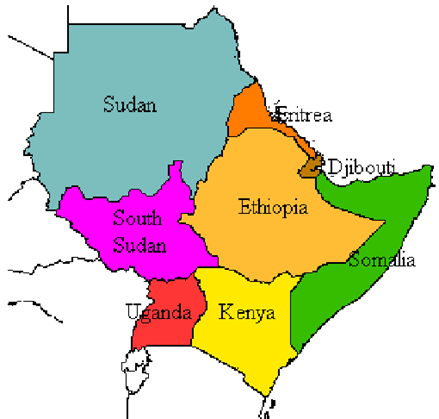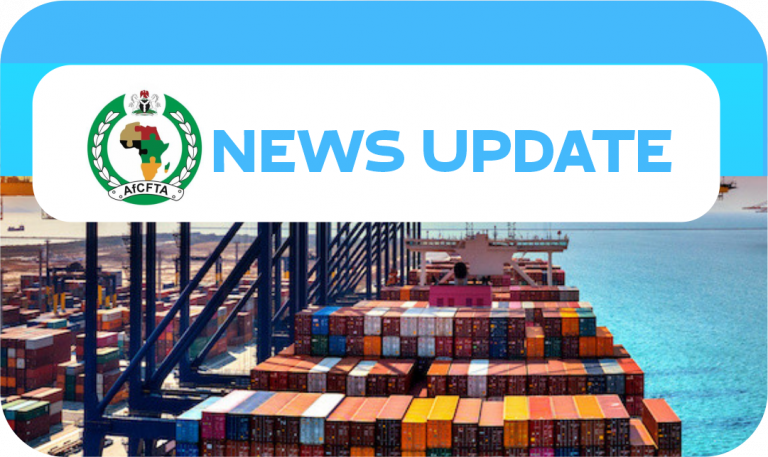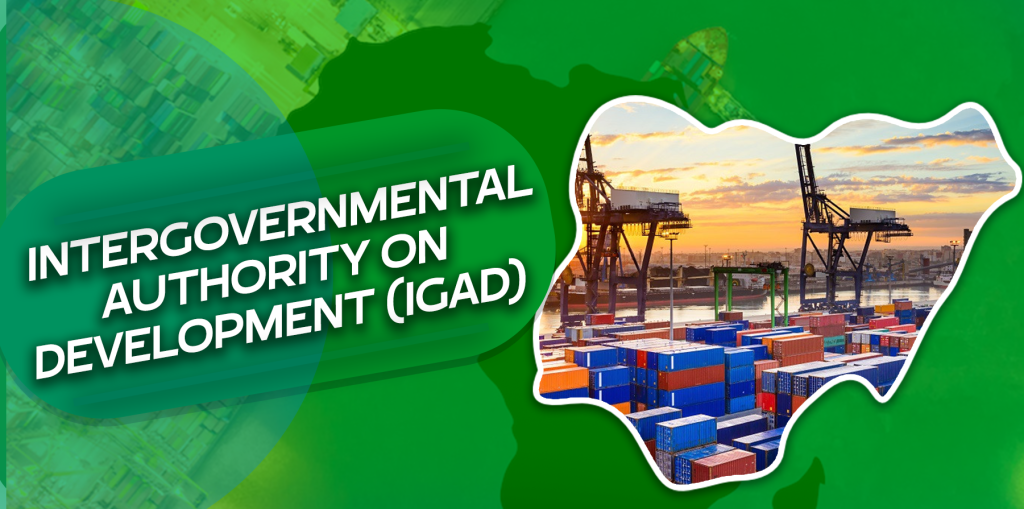Intergovernmental Authority on Development (IGAD)
In the last edition, we focused on the Economic Community of Central African States (ECCAS). This week, our discussion will be targeted at the Intergovernmental Authority on Development (IGAD) which is one of the Regional Economic Community (REC).
IGAD in Eastern Africa was created in 1996 to replace the Intergovernmental Authority on Drought and Development (IGADD), which was established in 1986 to mitigate severe droughts and other natural disasters that led to widespread famine, ecological degradation, and economic hardship in the region.
In collaboration with the United Nations, Djibouti, Ethiopia, Kenya, Somalia, Sudan, and Uganda established a regional intergovernmental body to combat droughts and aid development. In 1993, Eritrea became the seventh member, and in 2011, South Sudan became the eighth.
The Assembly of Heads of State and Government meeting in Addis Ababa held in April 1995, resolved to revitalize IGADD and expand cooperation among its members in light of the new political and socio-economic challenges. On 25-26 November 1996 in Djibouti, the 5th Summit of the IGAD Assembly of Heads of State and Government launched the new and revitalized IGAD.
The IGAD region stretches over an area of 5.2 million km² that comprises the countries of Djibouti, Eritrea, Ethiopia, Kenya, Somalia, South Sudan, Sudan, and Uganda.

The summits endorsed the decision to enhance regional cooperation in three areas:
- Food security and environmental protection
- Economic cooperation
- Regional integration and social development peace and security.
The aim of IGAD as stipulated in Article 7 of the Agreement Establishing IGAD includes:
• Promote joint development strategies and gradually harmonize macroeconomic policies and programs in the social, technological, and scientific fields.
• Harmonize policies with regard to trade, customs, transport, communications, agriculture, natural resources, and the environment, and promote the free movement of goods, services, and people within the region.
• Create an enabling environment for foreign, cross-border, and domestic trade and investment.
• Initiate and promote programs and projects to achieve regional food security and sustainable development of natural resources and environmental protection and encourage and assist efforts of Member States to collectively combat drought and other natural and man-made disasters and their consequences.
• Develop and improve a coordinated and complementary infrastructure, in the areas of transport, telecommunication, and energy in the region.
• Promote peace and stability in the region and create mechanisms within the region for the prevention, management, and resolution of inter-State and intra-State conflict dialogue.
• Mobilize resources for the implementation of emergency, short-term, medium-term, and long-term programs within the framework of regional cooperation.
• Facilitate, promotes, and strengthen cooperation in research development and application in science and technology.
• Promotes capacity building and training at regional and national levels.
• Generate and disseminate development information in the region.
IGAD is a Regional Economic Community (REC), one of the eight building blocs of the African Economic Community (AEC). One of the main advantages of IGAD lies in its strategic location, size, ecological diversity, vast resources, and people who are naturally integrated by culture and transboundary resources. Furthermore, the IGAD region hosts a number of UN agencies and the AUC (in Addis Ababa and Nairobi), which allows for enhanced communication and facilitation of meetings with various Heads of State on high-level policy issues.
IGAD region has a population of over 230 million, where 50% of the population are youth, which provides a good opportunity for continued economic growth if the youth are provided with appropriate education and training. However, the major trend of urbanization is increased migration into the big urban areas which can present a very real threat to peace and stability in some countries of the IGAD regions.
The region’s Gross Domestic Product (GDP) has grown by more than 5% compared with the AU/SDG target of 7% during the plan period with agriculture being the dominant sector accounting for 31% of the GDP in the region. Also, the region has increased moving towards democratic governance and has made progress towards establishing a competitive economy.
A number of IGAD member states have taken steps to improve their governance systems at the national and regional levels by strengthening their structures and institutions across all development sectors and their interconnections, ensuring coherence, integrating policies, minimizing duplication and resource waste, and strengthening institutional capacities.
IGAD’s focus for regional economic cooperation and integration is to create a single market open to competitive entry and well-integrated into the global economies. This requires regional infrastructure and the gradual harmonization of policies for the removal of barriers to inter-state communication. Although the globalization trends of the economy provide enormous opportunities, they also impose major constraints on the IGAD region. They also offer potential benefits if they are exploited as appropriate policy measures and structural changes in a combined effort if utilized.
The IGAD region has almost a quarter of Africa’s population (around 24%), However, the region contributes little to the continental economy (around 11%). The low level of economic productivity in IGAD affects the implementation of the AfCFTA, its objectives, and its ultimate contribution to improving people’s lives.
The IGAD Free Trade Area (FTA) and the minimum integration plan envisage in the six stages for the accomplishment of the African Economics Community (AEC), which includes the creation of a free trade area and customs union in each of the eight regional blocks by 2017 not possible to achieve. The development of a Free Mobility Regime through the execution of a Protocol for the Free Movement of Persons is a requirement for the IGAD FTA, by doing this, the region’s travel limitations will be lessened, and it will also be easier to move about, create a home, get a job, get a work permit, and move livestock.
A successful scale-up in the industry sub-sector will enhance regional integration and economic cooperation and value addition. More importantly, it will add value to the living standard of citizens in the Member States as it will boost intra-African Trade.
Reference(s)
- “IGAD: Its History and Development”. IGAD, accessed 6th January 2023.
- “IGAD: Aims and Objectives”. IGAD, accessed 6th January 2023.
- “IGAD Structure”. IGAD, accessed 7th January 2023.
- “The IGAD Region”. IGAD, accessed 8th January 2023.
- “The African Continental Free Trade Area (AfCFTA)”. LIFE & PEACE INSTITUTE, accessed 8th January 2023.
- “IGAD states continue consultation on free movement of persons”. Uganda Business News, accessed 9th January 2023.
- “A map showing IGAD Region”. ResearchGate, accessed 10th January 2023.

AfCFTA: Rising energy cost, forex crisis threaten local manufacturing
The African Continental Free Trade Area is one of the most significant trade agreements since the establishment of the World Trade Organisation. The over 54 countries that are a part of it are home to over 1.3 billion people and generate over $3tn in annual GDP.
READ MORE
AfCFTA: Ghana To Host Africa’s Political, Business, Social Sector Leaders
Africa’s political, business and social sector leaders will be hosted between January 26 to January 28, 2023 in Ghana at the maiden edition of the Africa Prosperity Dialogues.
READ MORE
Good news to build upon: Africa is converging
In these challenging times marked with inflation, climate change, pandemics, and geo-political tensions, one should be concerned with the situation of the poorest economies, in Africa notably.
READ MORE
Ukraine to set up grain hubs in Nigeria ‘to boost bilateral ties’
The government of Ukraine has expressed readiness to establish grain hubs in Nigeria and other African countries. The country also donated about 25,000 tonnes of grains to Nigeria to boost bilateral ties.
READ MORE
World Bank downgrades Nigeria’s economic growth projection
The World Bank Group has once again lowered its growth projection for Nigeria’s economy, citing a weakened oil sector as its primary reason.
READ MORE
